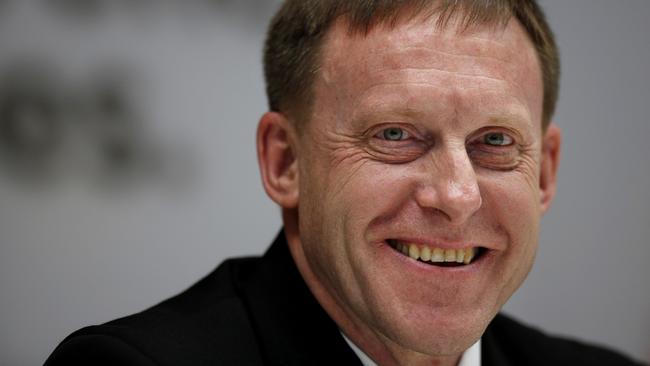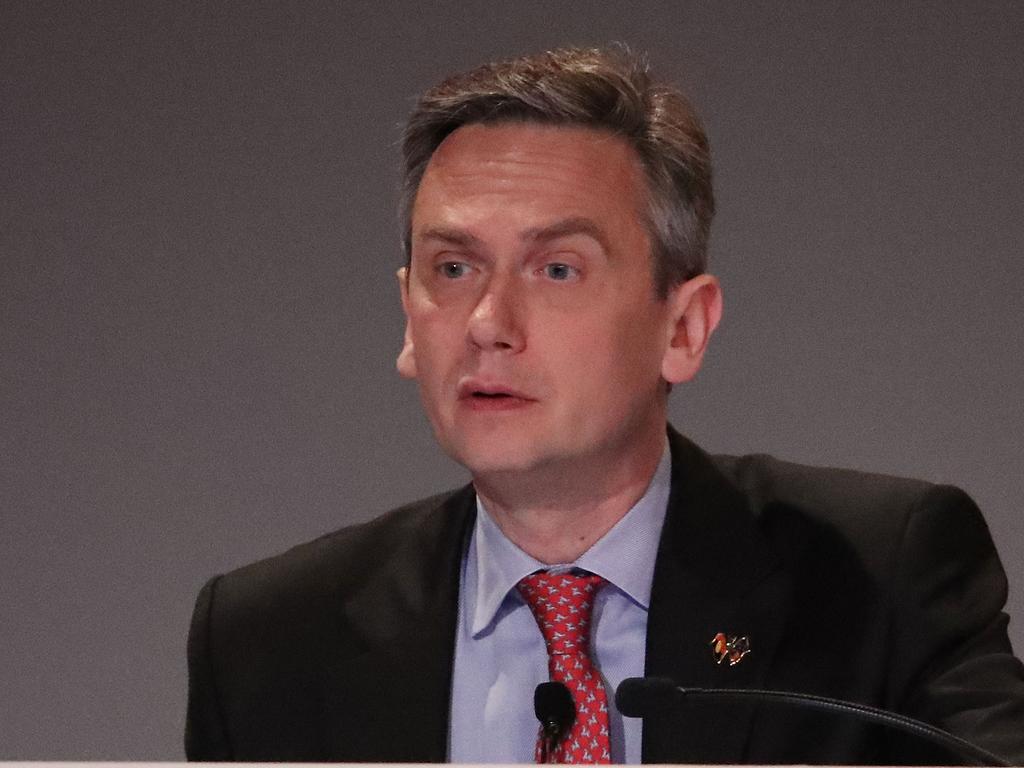State hacking on the rise, warns cyber-security expert Mike Rogers
China is using hacking to boost its economic and technological edge, warns former director of the US National Security Agency.

Russia is the world centre of criminal hacking and China is using hacking to boost its economic and technological edge, warns cyber-security expert Mike Rogers, former director of the US National Security Agency.
Speaking from the US to a conference hosted by Credit Suisse, Admiral Rogers said some nations were becoming increasingly aggressive in their levels of hacking.
He said there were some “state actors” that “didn’t work hard to mask their activity” in the past but now were “spending a little bit more time to make sure that they are not caught”, including partnering with criminal elements to disguise their origins.
“We are watching some nations now create relationships, almost partnerships, with non-state actors like criminals,” said Admiral Rogers, who is also a former head of US Cyber Command.
“The greatest concentration of cyber criminal effort is in Russia, in terms of amount of effort, level of complexity and ability, level of organisation.
“You have seen the Russians create partnerships with some of these organisations. That is always very worrisome.”
Admiral Rogers said China also used hacking to access intellectual property “as part of its broader strategy of creating a technological and economic advantage for China versus the rest of the world”.
He said China’s strategy was to ensure the continued control by the Communist Party by delivering its citizens increasing economic affluence. It had seen the importance of technology in the increasing power and influence of Western countries since the end of World War II.
“Their view is that they are going to change that dynamic,” he said. “They want to out-compete the West in the fundamental technologies of the digital age including artificial intelligence and nano technology. They have decided that if they have to steal the technology either by cyber or other means, they will do it to gain an advantage.”
Admiral Rogers said the world was at a crossroads, where most of the technology that had generated mass wealth and opportunities for society in recent times had been developed by the West.
But he said nations such as Russia and China, with very different values, were prepared to use tactics not used by governments in the West to obtain access to technology and intellectual property to boost their own technological capacity.
“They are willing to engage in actions that our society would find totally objectionable and we would not do,” he said.
Very determined approach
He found state actors that targeted information that they regarded of value in the West took a very determined approach to achieving their goals.
“They are willing to focus on targets for an extended period,” he said. “They are willing to invest resources over an extended period, which can make it harder, particularly for corporations.
“If you have a state actor adversary which thinks what you have is of such value, they will take as much time as it takes to access it. You see it play out very aggressively, particularly with the Chinese, who have had a strategy of accessing intellectual property around the world.
He said Western countries such as Australia needed to recognise the importance of investment in cyber security.
“You can’t walk away from it,” Admiral Rogers said. “There is a need to recognise that for nation-states, companies and individuals, cyber security is a challenge and a priority which requires some level of investment, focus and prioritisation.”
He said countries needed to be ready to call out state-sponsored hacking if they felt it was going on. “Let’s not pretend these things are not happening,” he said.
“Let’s ask ourselves: ‘How do we improve our cyber resilience? How do we take steps to communicate to other nations that we have a level of awareness on what they are doing which we think is unacceptable?’ ”
Admiral Rogers also warned that the move to working from home as a result of the COVID-19 pandemic was increasing cyber-security risks.
“We have seen an increased cyber-security risk as a result of COVID-19 and actions the government has taken,” he said.
“We went from a structure where there were multiple layers of defence in companies, which spent a significant amount of time and resources built around the idea of people largely working from offices in physical proximity to each other.
“Suddenly, now we have to push out the connectivity to homes, blurring the line between home and work.
“We are all working on the same (internet) backbones at the same time as our children are playing games and our spouses are doing business. Cyber security has become much more of a challenge. For an attacker, it is a much better environment.”








To join the conversation, please log in. Don't have an account? Register
Join the conversation, you are commenting as Logout